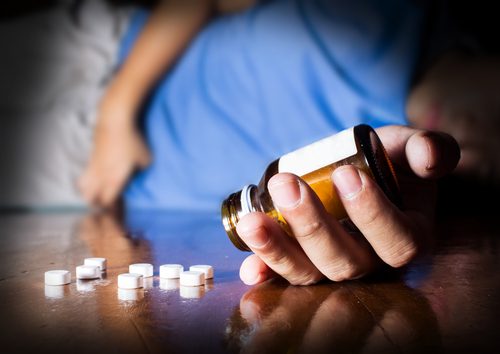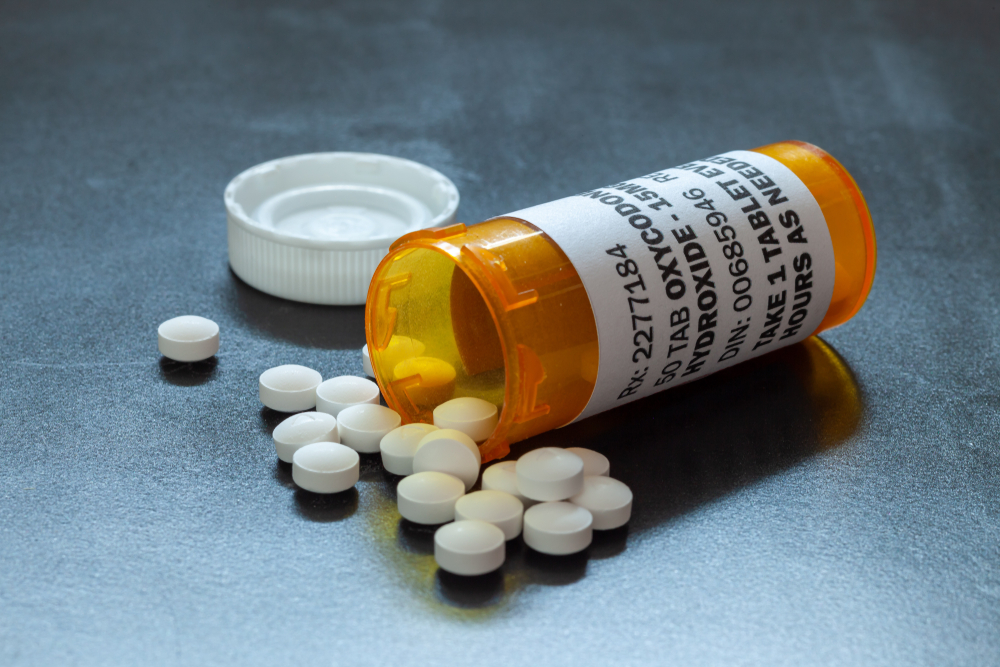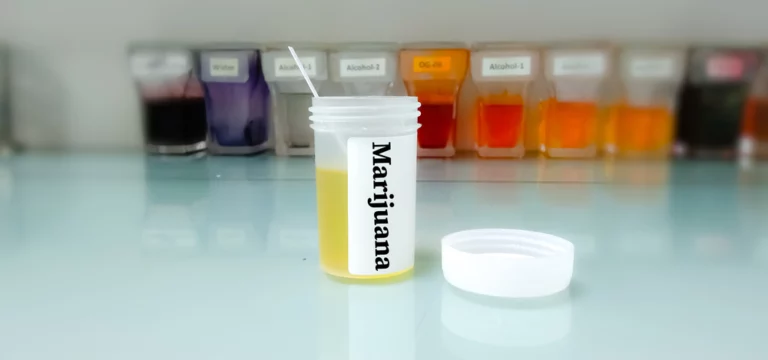Effective Oxycodone Addiction Treatment Options
The opioid epidemic continues to worsen each year in America. According to recent stats, over 82,000 people died from opioid overdoses in 2022, up from 82,000 the previous year. These aren’t just numbers – they represent our loved ones, friends, and community members.
If you or a loved one are struggling with oxycodone addiction, the good news is there are treatment options available. This article will explore the most effective oxycodone addiction treatment options and explain why an individual may develop an oxycodone addiction.
Do You Have an Oxycodone Addiction?
It’s essential to understand if you have an oxycodone addiction as it may lead to dangerous side effects. However, recognizing these signs may be challenging for some individuals. Some of the most common signs that may mean you have an oxycodone addiction include:
Physical Dependence
When you start needing oxycodone to feel regular or function, that’s a sign you’ve developed a physical dependence. When you stop taking the medication, you may experience withdrawal symptoms like nausea, vomiting, diarrhea, sweating, and restless leg syndrome.
Psychological addiction can also develop, where you crave oxycodone and prioritize obtaining it. You may start isolating yourself from family and friends or give up hobbies and social activities to focus on getting more oxycodone.
Loss of Control
You may take oxycodone in higher doses or more often than your doctor prescribes. You can’t control how much or how often you take the medication despite negative consequences like health issues or problems at work or in relationships.
Continued Use
Even though oxycodone is causing issues in your life, you cannot stop. You may recognize your addiction but feel powerless against the compulsion to keep using the drug. Getting treatment, whether inpatient rehab, outpatient therapy, support groups, or medication, can help you overcome an oxycodone addiction and regain control of your life.
Read More: How Long Does Oxycodone Stay in Your System?

Effects of Oxycodone Use
Oxycodone, a prescription opioid, is often abused for its immediate effects. These include relaxation and drowsiness due to its sedative impact on the central nervous system. It also triggers the release of dopamine, causing a temporary euphoric feeling, and reduces pain signals, providing relief. However, it can lead to stomach issues and dry mouth, resulting in nausea and constipation.
Misuse of oxycodone can lead to overdose, so sticking to prescribed dosages is crucial. Prolonged use can lead to psychological changes like depression, anxiety and physical problems like insomnia. These effects might persist after stopping the drug. Physically, chronic constipation and nausea worsen over time, causing discomfort. Increased tolerance increases the risk of overdose, especially when combined with other drugs.
Long-term use of opioids like oxycodone also affects breathing, often causing respiratory depression, which can result in severe complications. Muscle weakness, slowed reflexes, and coordination issues are common, impacting daily life.
Oxycodone Addiction Treatment Options
When it comes to addressing oxycodone addiction, several effective treatment options are available, each tailored to individuals’ specific needs and circumstances. These approaches encompass a holistic range of strategies that aim to assist individuals in breaking free from the grip of addiction and embarking on a journey toward recovery and overall well-being. The most common oxycodone addiction treatment options include:
Medication-Assisted Treatment
Medication-assisted treatment (MAT) uses medications, counseling, and behavioral therapies to provide a whole-patient approach to treating oxycodone addiction. There are three medications approved for MAT:
- Buprenorphine: Buprenorphine suppresses withdrawal symptoms and reduces cravings for oxycodone. It comes in pill or film form and is taken daily. Buprenorphine is a partial opioid agonist, meaning it activates opioid receptors in the brain enough to prevent withdrawal and reduce cravings but not enough to produce a high.
- Methadone: Methadone reduces cravings and withdrawal from oxycodone. It is dispensed daily as a liquid medication. Methadone is a full opioid agonist, meaning it fully activates the opioid receptors in the brain. When prescribed, methadone prevents withdrawal symptoms but does not produce a high.
- Naltrexone: Naltrexone blocks the effects of oxycodone and prevents feelings of euphoria. It comes in pill or injectable form. Unlike buprenorphine and methadone, naltrexone is not an opioid. It works by blocking opioid receptors and preventing oxycodone from activating them. Naltrexone eliminates cravings and prevents relapse.
MAT provides a comprehensive approach to overcoming an oxycodone addiction. These medications can effectively achieve long-term recovery when combined with counseling and lifestyle changes.

Inpatient Rehab
Inpatient rehab involves full-time admission to a treatment facility, where patients receive 24/7 medical supervision. The intensive nature of inpatient rehab gives you the best chance at achieving and maintaining sobriety.
In these live-in programs, round-the-clock care helps to address substance use disorders, co-occurring mental health conditions, and other behavioral issues that may accompany addiction. Patients in inpatient rehab reside at the facility for the duration of treatment so they can focus entirely on recovery without distractions from work, family, or friends.
Staying at an inpatient facility allows you to be monitored by medical staff continuously so they can properly diagnose any co-occurring disorders or health issues and adjust treatment as needed. Inpatient treatment also removes you from environments and relationships that enable your addiction, helping you build a strong foundation in recovery.
Outpatient rehab allows you to get treatment for an oxycodone addiction while still living at home. Outpatient programs offer more flexibility than inpatient rehab. You can continue working or attending school while attending a few hours of therapy each day or week. Many people do outpatient rehab after inpatient treatment.
Outpatient therapy uses similar approaches as inpatient rehab, like counseling, support groups, and medication. However, you have more freedom and independence. This allows you to apply what you learn to your daily life immediately. Outpatient rehab costs less since you don’t need 24-hour care and housing.
The downside is that you don’t get the same level of support as inpatient rehab. As there are more opportunities to relapse when living at home, it requires a lot of motivation and commitment to recovery. This may not suit those with severe addictions or unstable home environments.
Behavioral Therapies to Complement Oxycodone Addiction Treatment
Behavioral therapies are highly effective at helping overcome an oxycodone addiction. These therapies are utilized in addiction treatment to address the underlying causes of addiction and recognize unhealthy patterns and behaviors. Two of the most common types are:
Cognitive Behavioral Therapy (CBT)
CBT helps you recognize negative thought patterns and behaviors related to your oxycodone abuse and gives you strategies to overcome them. A therapist will help you identify triggers that cause cravings and how to avoid or manage them. CBT also teaches coping skills for dealing with stress and pain healthily.
Contingency Management (CM)
CM uses a system of rewards to help motivate you to stay in recovery. For example, if you test negative for oxycodone use, you earn rewards and privileges. This positive reinforcement can be very effective, especially when combined with CBT. CM helps give you short-term motivation and goals to work towards, which builds up your confidence and resilience over the long run.
The most effective oxycodone addiction treatment combines medication, behavioral therapies, lifestyle changes, and a strong support system. Don’t hesitate to explore various options with the help of medical professionals to find what works for your unique situation. Overcoming an addiction is challenging, but with the proper treatment and determination, you can live a happy, healthy life free from oxycodone.
Learn More: Strategies For Staying Motivated & Committed To Sobriety

Finding the Right Oxycodone Addiction Treatment Center
Finding the right oxycodone addiction treatment center for you is vital to your recovery. The center should focus specifically on oxycodone addiction and be staffed with medical professionals experienced in treating it. Look for places that offer:
- Medically-Assisted Detox: Withdrawing from oxycodone can be difficult and painful. Medically assisted detox uses medications to ease withdrawal symptoms and make you more comfortable.
- Individual and Group Therapy: Speaking with others who understand what you’re going through can be very helpful. Individual therapy also allows you to address the underlying causes of your addiction privately.
- Family Support: Having close family and friends is essential to long-term recovery. Look for a center that educates loved ones about oxycodone addiction and involves them in your treatment.
- Aftercare Planning Services: Look for a center that provides aftercare and follow-up options like outpatient treatment, sober living housing, and continued therapy or support groups to help you stay committed to your sobriety after initial residential or inpatient treatment.
Oxycodone Addiction Treatment at Louisville Recovery Center
The most effective oxycodone addiction treatment incorporates detox, therapy, family support, and follow-up care. At a high-quality treatment center like Louisville Recovery Center, you can break free from dependence on oxycodone and start building a fulfilling life in recovery. Call (502) 706-4406 today to speak with an intake specialist.







